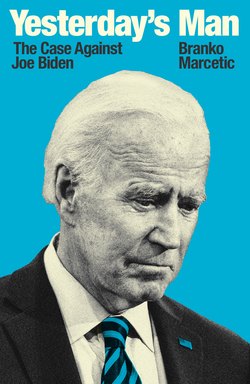Читать книгу Yesterday's Man - Branko Marcetic - Страница 9
На сайте Литреса книга снята с продажи.
ОглавлениеChapter 3
Racing in the Street
Black lives really do matter. But the problem is institutional racism in America. That’s the overarching problem that exists.
—Joe Biden, 20161
It was Labor Day weekend in 1980 when a young motorist found himself being tailed by an irate Joe Biden.
The young man had been speeding down an abandoned road when Biden, attending a nearby birthday party at his sister’s house, spotted him. Alarmed at the driver’s recklessness when his and the other parents’ kids were playing outside—and no doubt triggered by the trauma of the crash that had killed his first wife and baby daughter—Biden jumped into his car and chased him for more than half a mile, finally catching him across state lines in Pennsylvania. Making a citizen’s arrest, Biden charged the 26-year-old with reckless driving in magistrate court; he returned not once but three more times to make sure the charge was filed in a case that he, having made the arrest, would have to personally prosecute. Biden only dropped the charge after the motorist started desperately calling him every day, telling him he was a hard worker, this was his one and only such joy ride, and he could lose his license if convicted. Asked by the Wilmington News Journal after he dropped the case if he was just avoiding prosecuting a potential voter, Biden replied: “I wouldn’t have minded that. It would have been fun.”2
This wasn’t the first time Biden had dabbled in some minor vigilante justice. Three years earlier, he had chased down two purse snatchers and returned the stolen goods to the victim. But this incident was different in the lengths to which Biden went to make sure one young motorist’s irresponsible joy ride would be punished by the criminal justice system.
“Some guys they just give up living and start dying little by little, piece by piece,” Bruce Springsteen, the poet of blue-collar America, had sung in 1978. “Some guys come home from work and wash up, and go racing in the street.” And other guys, it seemed, do citizen’s arrests and prosecute those guys.
The incident was a powerful symbol for the direction Biden’s career would take from the 1980s onward as the twin issues of crime and drugs took a central role in his political persona. It captured the zeal with which Biden would prosecute the late twentieth-century “wars” against both, which quickly and seamlessly morphed into a war on the mostly nonwhite underclass of the United States.
It’s practically impossible to divorce political issues in the United States from race. As everyone from newspaper reporters to sociologists would discover from the 1970s on, almost every hot-button topic in US politics, including education, welfare, and the size of government, was, in an era barely a few decades out from Jim Crow, deeply tied up with voters’ racial attitudes. It was something Ronald Reagan had capitalized on in a presidential campaign that darkly signaled to conservative white voters that he understood their frustration over minorities supposedly gaming the system to get ahead.3
But perhaps no issues were more wrapped up in America’s fraught history with race than crime and drugs. By the time the 1960s were over, outright racism and support for Jim Crow had become out of bounds, and conservatives needed a way to keep capitalizing on white voters’ racist fears without coming across as defrocked Klansmen. The genuine rise in crime and drug use during the 1960s proved the most fertile ground. It is little wonder, then, that so many of Congress’s most-storied former segregationists so easily made the transition into tough-on-crime-and-drugs warriors after the 1960s.4
